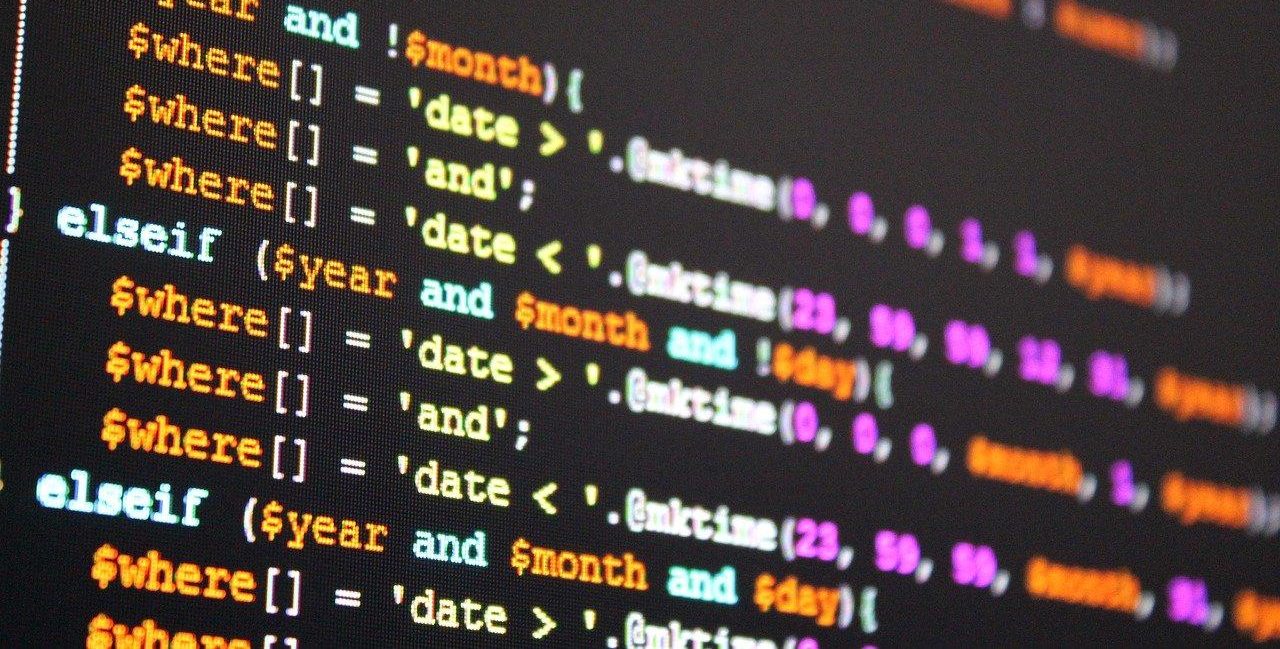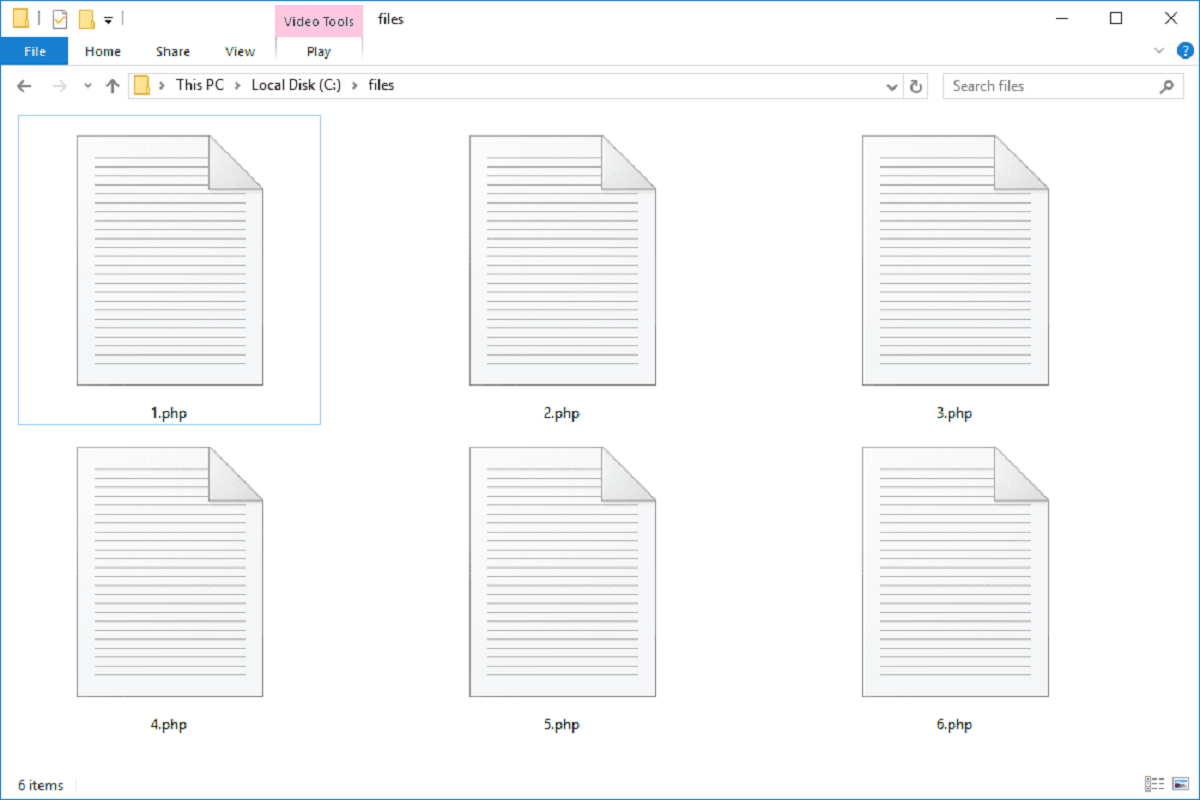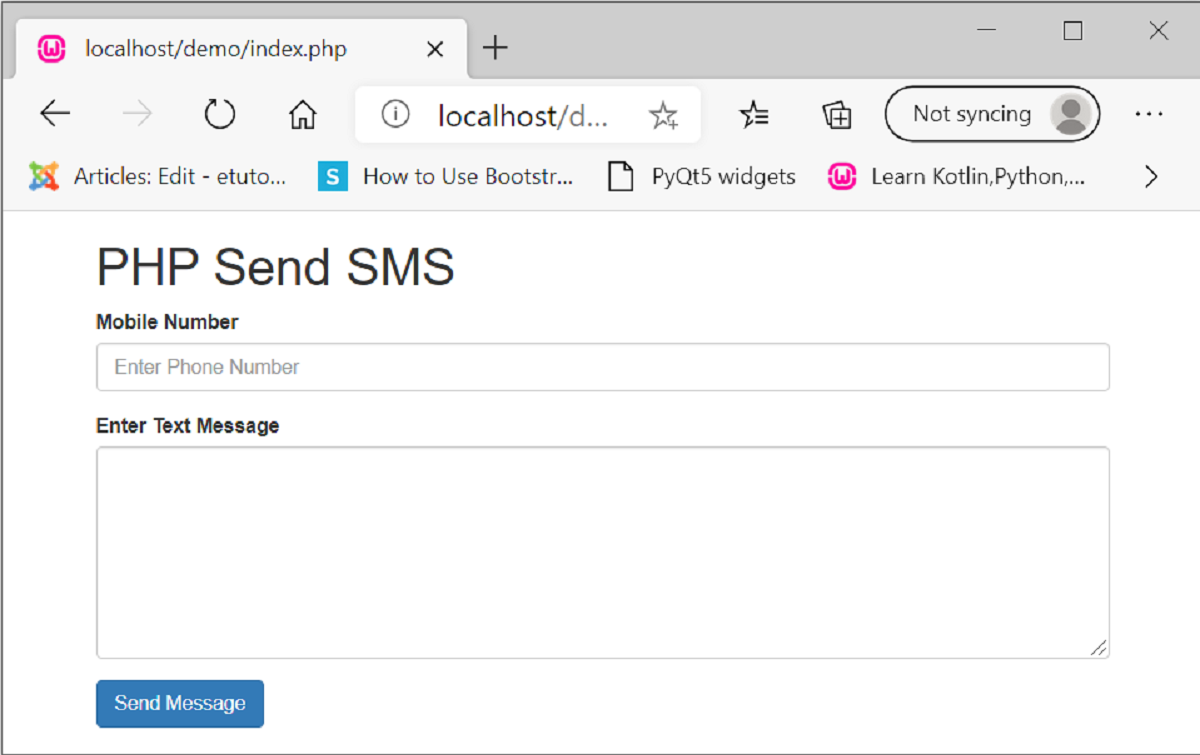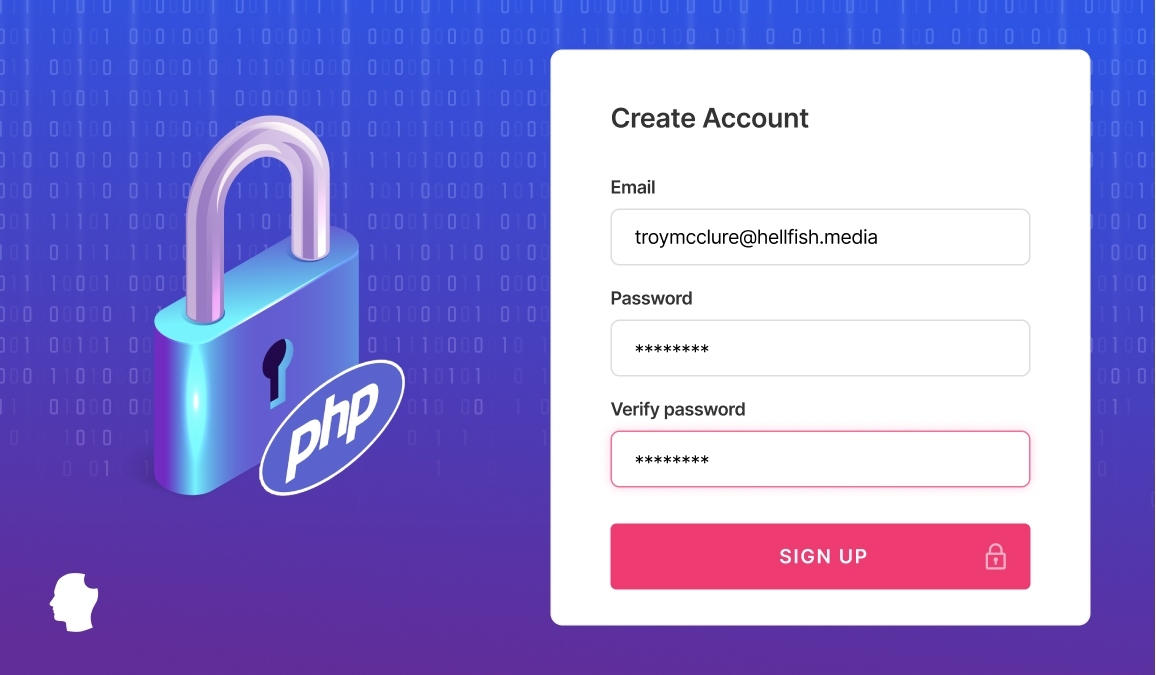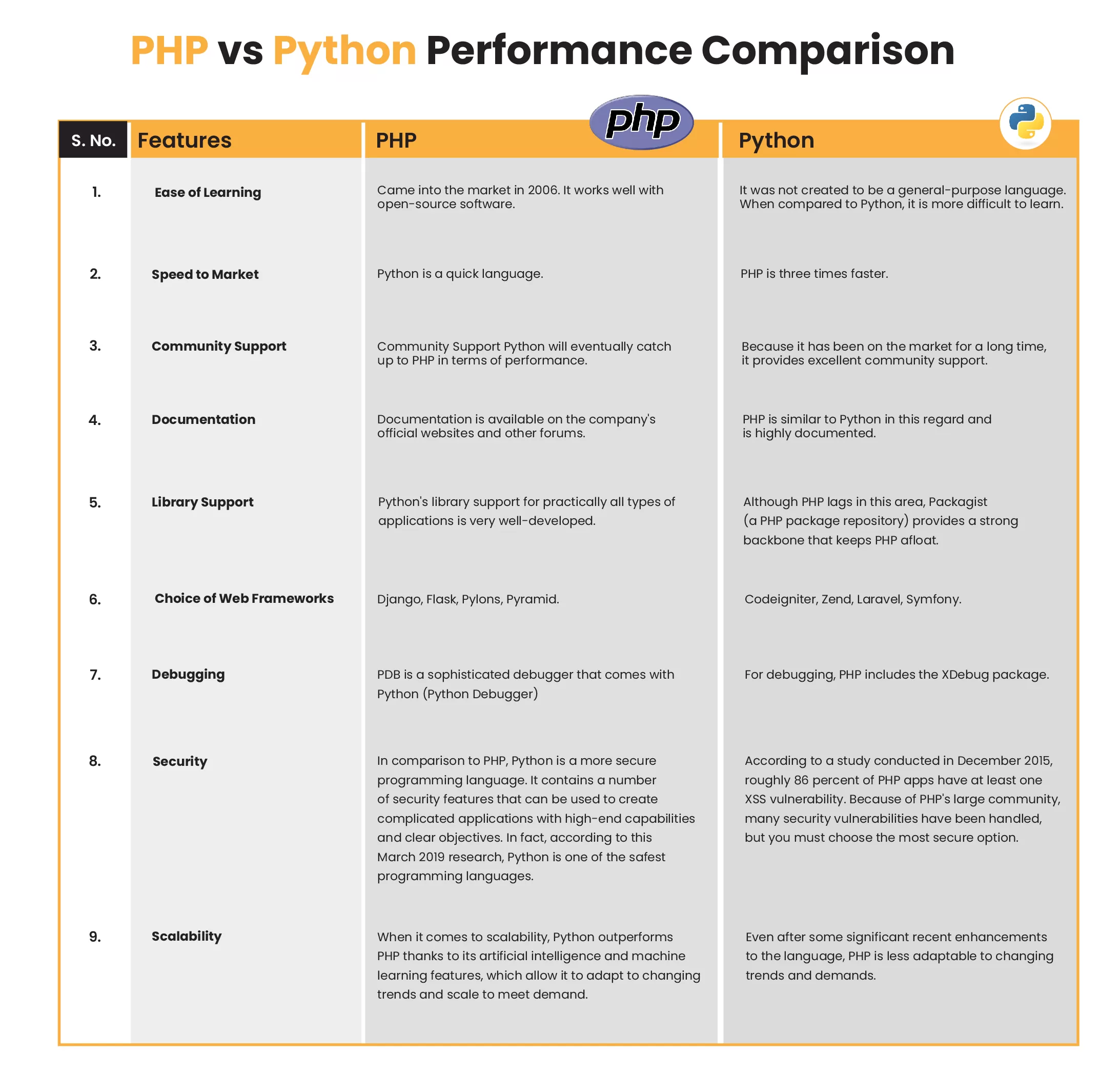Introduction
Welcome to the world of PHP! Whether you’re a beginner looking to dive into web development or an experienced coder looking to expand your skillset, learning PHP can be a valuable and rewarding endeavor. PHP is a popular server-side scripting language that is used to develop dynamic and interactive websites. It is widely used and supported, making it a versatile language to have in your programming toolkit.
PHP, which stands for Hypertext Preprocessor, was created by Rasmus Lerdorf in 1994 and has since evolved into a powerful scripting language used by millions of web developers worldwide. It has a simple and intuitive syntax that is reminiscent of C and Perl, making it relatively easy to learn for those with programming experience.
In this article, we will explore the various factors that make PHP an attractive language to learn, as well as the potential challenges you may encounter along the way. By understanding both the advantages and obstacles associated with learning PHP, you can approach your learning journey with confidence and a clear understanding of what to expect.
So, why should you learn PHP? Is it difficult to grasp? And what can you do to maximize your learning experience? Let’s delve into these questions and discover the ins and outs of PHP together. Get ready to embark on an exciting web development adventure!
What is PHP?
PHP is a powerful server-side scripting language that is primarily used for web development. It is often embedded within HTML code to create dynamic and interactive websites. PHP code is executed on the server before the HTML is sent to the client’s web browser, allowing for the generation of dynamic content and database interactions.
One of the key features of PHP is its ability to seamlessly interact with various databases, such as MySQL, SQLite, and Oracle. This allows developers to easily retrieve, store, and manipulate data from a database to create dynamic web pages.
PHP code is written within tags and can be mixed with HTML, CSS, and JavaScript. This flexibility enables developers to easily integrate PHP code with existing web technologies, making it a popular choice for website development.
Additionally, PHP offers a vast library of functions and extensions, providing developers with a wide range of tools to simplify common web development tasks. Whether you need to handle form submissions, access files on the server, or send emails, there is likely a PHP function or extension available to streamline the process.
PHP is an open-source language, which means that its source code is freely available for modification and redistribution. This has led to a large and vibrant community of PHP developers who contribute to its growth and share their knowledge and expertise through forums, tutorials, and online resources.
Overall, PHP is a versatile and powerful scripting language that enables developers to create dynamic and interactive websites. Its integration capabilities, extensive library of functions, and strong community support make it a popular choice for web development projects of all sizes.
Why learn PHP?
With the plethora of programming languages available, you may wonder why you should invest your time and effort into learning PHP. Well, here are some compelling reasons that make PHP a valuable language to add to your skillset.
- Widespread usage: PHP is one of the most widely used server-side scripting languages in the world. It powers numerous popular websites and content management systems, such as WordPress and Facebook. By learning PHP, you open doors to a vast array of job opportunities and projects.
- Easy to pick up: PHP has a relatively simple and intuitive syntax, making it an excellent choice for beginners. It shares similarities with other popular languages, such as C and Perl. If you’re already familiar with these languages, you’ll find learning PHP to be a smooth transition.
- Large community and extensive resources: PHP has a vibrant and active community of developers who provide support, share knowledge, and contribute to its growth. You’ll find an abundance of online resources, tutorials, and forums that can help you along your learning journey.
- Support for web development: PHP is purpose-built for web development. It offers robust features for handling forms, processing data, interacting with databases, and generating dynamic content. Whether you’re building simple websites or complex web applications, PHP provides the tools and functionality you need.
- Compatibility and integration: PHP works seamlessly with various databases, operating systems, and web servers. It can run on different platforms, such as Linux, Windows, and macOS. Its compatibility and integration capabilities make it a flexible choice for developing web applications.
- Job market demand: Due to its widespread usage, there is a strong demand for PHP developers in the job market. Many organizations, both large and small, rely on PHP for their web development needs. By mastering PHP, you increase your chances of landing a rewarding and well-paid job.
These are just a few of the reasons why learning PHP can be a wise investment of your time and effort. Whether you’re a beginner or an experienced developer, PHP offers a practical and versatile skillset that can propel your career in web development.
Is PHP difficult to learn?
When it comes to learning any programming language, it’s natural to wonder about the level of difficulty involved. In the case of PHP, the answer is: it depends.
PHP, overall, is considered to be a relatively easy programming language to learn, especially for those with prior programming experience. Its syntax is straightforward and intuitive, resembling C and Perl. If you’re already familiar with these languages or have a solid foundation in programming concepts, you’ll find PHP a breeze to pick up.
One of the reasons PHP is regarded as beginner-friendly is its forgiving nature. It doesn’t enforce strict rules or rigid structures, allowing developers to write code in a flexible and expressive manner. This can be both a blessing and a curse – while it provides freedom, it also means that developers need to be mindful of maintaining clean and organized code.
However, like with any programming language, there are certain aspects of PHP that might pose challenges to beginners. Understanding concepts such as object-oriented programming (OOP) and database interactions might require some time and practice.
Furthermore, PHP has evolved over the years, and there are multiple versions in use. While this allows for added flexibility and customizability, it can also be overwhelming for beginners to navigate through different versions and keep up with the latest features and best practices. It’s important to focus on learning the fundamentals of PHP before diving into the more advanced concepts.
Another factor to consider is the ever-changing landscape of web development. While PHP continues to be widely used, other programming languages and frameworks have gained popularity in recent years. It’s important to stay updated and broaden your skillset to remain competitive in the job market.
Ultimately, the level of difficulty in learning PHP will depend on your prior programming experience, dedication, and commitment to practice. With the right resources, guidance, and a willingness to invest time and effort, PHP can be a rewarding language to master.
Factors that make PHP relatively easy to learn
PHP is often praised for its beginner-friendly nature, thanks to the following factors that contribute to its ease of learning:
- Simple Syntax: PHP has a simple and intuitive syntax, making it easy to understand and write code. The syntax is similar to other popular programming languages like C and Perl, allowing developers with prior experience to transition smoothly.
- Wide Range of Online Resources: PHP has a vast and active online community of developers who share their knowledge through tutorials, forums, and documentation. This wealth of resources makes it easier to find answers to questions, seek help, and learn best practices.
- Integration with HTML: PHP can be seamlessly embedded within HTML code, allowing developers to mix PHP and HTML effortlessly. This integration makes it convenient to incorporate dynamic content and create interactive web pages.
- Extensive Library of Functions: PHP provides a rich set of built-in functions that help simplify common tasks, such as string manipulation, form handling, file management, and database interactions. These functions make it easier to write efficient and concise code.
- Database Connectivity: PHP has excellent support for database integration, making it straightforward to connect, query, and manipulate databases. This capability is particularly useful when building data-driven web applications.
- Compatibility and Flexibility: PHP can run on various operating systems and web servers, making it platform-independent. This flexibility allows developers to easily work with different servers and environments.
These factors contribute to the relatively easy learning curve of PHP, providing beginners with a solid foundation to start building web applications. With the abundance of resources and the simplicity of the language, new developers can quickly grasp the basics of PHP and start creating dynamic and interactive websites.
Factors that make PHP more challenging to learn
While PHP is generally considered to be an accessible programming language for beginners, there are still some factors that can present challenges during the learning process:
- Dynamic Typing: PHP is dynamically typed, meaning that variables can hold different types of data. This flexibility can sometimes lead to unexpected behavior and errors if not handled properly.
- Lack of Structure: PHP doesn’t enforce strict rules or conventions, which can lead to messy and unorganized code if developers are not careful. This lack of structure can make it challenging for beginners to maintain clean and maintainable code.
- Version Compatibility: PHP has multiple versions in use, and each version may introduce new features or syntax changes. This can make it challenging for beginners to navigate and ensure compatibility across different environments.
- Object-Oriented Programming (OOP): PHP supports object-oriented programming, which can be a complex concept for beginners to grasp. Understanding principles like inheritance, encapsulation, and polymorphism may require additional effort and practice.
- Security Considerations: When developing PHP applications, it’s crucial to be aware of security vulnerabilities and best practices. Beginners may need to familiarize themselves with concepts such as input validation, SQL injection prevention, and data sanitization.
- Evolution of Web Technologies: The web development landscape is constantly evolving, with new frameworks, tools, and libraries emerging. Keeping up with these changes can be overwhelming, especially for beginners who are still trying to master the fundamentals of PHP.
Despite these challenges, with dedication, practice, and a strong foundation in PHP, these obstacles can be overcome. By being aware of the potential challenges and focusing on continuous learning, developers can successfully navigate through the complexities of PHP and become proficient in building dynamic and secure web applications.
Tips for learning PHP effectively
Learning PHP can be an exciting and rewarding journey. To make the most of your learning experience, consider the following tips:
- Start with the basics: Begin by understanding the fundamentals of PHP, such as variables, operators, control structures, and functions. Mastering these basics will provide a solid foundation for more advanced topics.
- Practice hands-on coding: Theory alone won’t make you a proficient PHP developer. Practice writing code regularly to reinforce your knowledge and gain practical experience. Build simple projects or solve coding challenges to apply what you’ve learned.
- Break larger tasks into smaller steps: When tackling complex projects, break them down into smaller, manageable steps. This approach will make the learning process less overwhelming and allow you to focus on one aspect at a time.
- Read and analyze existing code: Study well-written PHP code by experienced developers to learn best practices, coding styles, and techniques. Analyzing and understanding code will improve your ability to write clean and efficient code.
- Utilize online resources and communities: Take advantage of the vast array of online tutorials, documentation, forums, and communities dedicated to PHP. These resources can provide guidance, answer questions, and facilitate learning through shared experiences.
- Experiment and explore: Don’t be afraid to experiment with different PHP features, functions, and libraries. Exploring different possibilities will deepen your understanding of PHP and help you discover efficient solutions to problems.
- Build projects: Apply your knowledge by building real-world projects. Practicing with projects will not only enhance your technical skills but also give you a sense of accomplishment and confidence as you see your code come to life.
- Stay updated: Keep up with the latest PHP developments, new features, and best practices. Subscribe to blogs, follow PHP-related websites, and engage with the PHP community to stay informed about the latest trends in the language.
- Seek feedback and review: Share your code with others and seek feedback from experienced PHP developers. Constructive criticism can help you improve your coding style, enhance efficiency, and learn alternative approaches.
- Practice problem-solving: Improve your problem-solving skills by working on coding challenges and exercises. Websites like LeetCode and HackerRank offer a variety of PHP-specific challenges that can help you sharpen your coding abilities.
By following these tips and maintaining a consistent learning practice, you can effectively progress in your PHP journey and become a competent PHP developer.
Resources for learning PHP
When it comes to learning PHP, there are various resources available to help you gain knowledge and improve your skills. Consider utilizing the following resources to enhance your learning experience:
- Online tutorials and documentation: Many websites offer comprehensive PHP tutorials and documentation, catering to learners of all skill levels. Websites like PHP.net, W3Schools, and Tutorialspoint provide detailed guides and examples to help you grasp PHP concepts.
- Interactive coding platforms: Platforms like Codecademy and FreeCodeCamp provide interactive PHP courses with hands-on coding exercises. These platforms offer a guided learning experience and allow you to practice your skills in a structured and engaging environment.
- Video tutorials: YouTube and online learning platforms like Udemy and Coursera host numerous PHP video tutorials. Video content can be an effective way to visualize concepts, follow along with coding examples, and learn from experienced instructors.
- Online forums and communities: Engaging with PHP forums and communities can be a valuable resource for learning and solving problems. Websites like Stack Overflow, PHP Reddit, and PHP Freaks provide platforms where you can ask questions, seek guidance, and learn from other developers’ experiences.
- Books and e-books: There are several books available that cover PHP programming in-depth. Consider titles like “PHP for the Web” by Larry Ullman and “Learning PHP, MySQL & JavaScript” by Robin Nixon. These books provide comprehensive explanations, coding examples, and real-world scenarios to enhance your understanding.
- Coding challenges and practice websites: Websites like LeetCode, HackerRank, and Codewars offer PHP-specific coding challenges and exercises. These platforms allow you to practice your problem-solving skills and reinforce your understanding of PHP concepts in a competitive and gamified environment.
- PHP frameworks and projects: Exploring popular PHP frameworks like Laravel, Symfony, and CodeIgniter can deepen your understanding of PHP development patterns and best practices. Building projects using these frameworks can provide hands-on experience and help you grasp the practical application of PHP concepts.
- Online courses and bootcamps: Look for reputable online PHP courses or PHP bootcamps that provide structured learning paths and comprehensive curriculum. Platforms like Udemy, Codecademy Pro, and Udacity offer PHP courses taught by industry professionals.
- PHP conferences and meetups: Attending PHP conferences and local meetups can expose you to the latest PHP trends, best practices, and networking opportunities. These events often feature industry experts who share their knowledge through talks, workshops, and panel discussions.
Remember to choose resources that align with your learning style and goals. Combining different types of resources, such as tutorials, videos, and practice exercises, can provide a well-rounded learning experience and help you progress in your PHP journey.
Conclusion
Learning PHP is a valuable investment for anyone interested in web development. Despite the challenges and complexities that may arise, PHP offers numerous advantages that make it an attractive language to learn.
With its simple syntax, extensive online resources, and wide usage in the industry, PHP provides a relatively easy learning curve for beginners. Its integration with HTML, compatibility with various databases, and extensive library of functions make it a powerful tool for building dynamic and interactive websites.
However, it’s important to acknowledge the potential challenges that come with learning PHP. Factors such as dynamic typing, lack of structure, and the need to continually stay updated with evolving web technologies may pose difficulties along the way.
To make the most out of your PHP learning journey, it’s essential to focus on the basics, practice hands-on coding, seek guidance from the online community, and build real-world projects. By utilizing a combination of resources, including tutorials, interactive courses, video tutorials, and coding challenges, you can reinforce your knowledge and improve your PHP skills.
Remember, learning PHP is a continuous process that requires dedication and a growth mindset. With persistence, patience, and a commitment to learning, you can become a proficient PHP developer and open doors to exciting career opportunities in web development.
So, embark on your PHP learning journey with enthusiasm, embrace the challenges and rewards that come with it, and enjoy the satisfaction of creating dynamic and interactive websites with one of the most popular server-side scripting languages – PHP!







